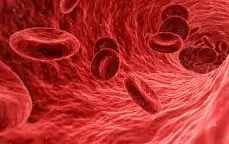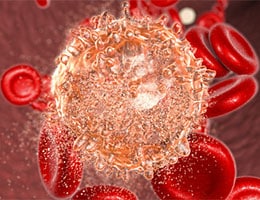 Hematology is the study of the characteristics of blood and the organs that generate it. The concept can also refer to the specialty of medicine focused on the analysis of hematological diseases .
Hematology is the study of the characteristics of blood and the organs that generate it. The concept can also refer to the specialty of medicine focused on the analysis of hematological diseases .
Hematology, in this framework, is concerned with researching, studying, diagnosing and treating blood and the organs responsible for hematopoiesis (that is, the generation of blood cells). The spleen , lymph nodes and bone marrow, therefore, are part of the interest of hematology.
The expert in hematology is called a hematologist . This is a specialist who can treat both malignant and non-malignant diseases, working on biochemical and structural disorders of blood cells and the organs that produce them.
It is important to keep in mind that blood cells come from pluripotent stem cells found in the bone marrow. Through hematopoiesis, a differentiation process develops that gives rise to the appearance of leukocytes , red blood cells , platelets and erythrocytes , blood cells with different qualities and specific functions.
When a disease affects blood production, it is classified as hematological. Hematology can deal with anemia , leukemia , and hemostasis disorders, to name a few possibilities.
By dedicating itself to the study of blood cells, on the other hand, hematology is also developed through laboratory tests that allow counting leukocytes, hematocrits and erythrocytes, for example. Precisely, the imbalances that may exist between these blood cells, anomalies in their proportions and their general condition can give rise to different diseases.
The most important function of red blood cells, for example, is the transport of oxygen and carbon dioxide, although it performs several others. Leukocytes, on the other hand, are essential for the immune system . Platelets, for their part, make a key contribution to blood clotting. In short, blood needs all cells to function properly, but they must be in certain proportions.
 As mentioned in a previous paragraph, one of the focuses of hematology is anemia , which consists of an insufficient number of red blood cells, a phenomenon that can arise due to several factors. Leukemia, on the other hand, is a disease characterized by an excessively high production of abnormal leukocytes, which generate dangerous symptoms after replacing thrombopoiesis and erythropoiesis.
As mentioned in a previous paragraph, one of the focuses of hematology is anemia , which consists of an insufficient number of red blood cells, a phenomenon that can arise due to several factors. Leukemia, on the other hand, is a disease characterized by an excessively high production of abnormal leukocytes, which generate dangerous symptoms after replacing thrombopoiesis and erythropoiesis.
To identify these and other imbalances, hematology relies on various laboratory tests, among which the complete blood count stands out, a blood test that includes close observation and counting of your cells. It is important to highlight that without this step the diagnosis of certain disorders and, therefore, the prescription of the most appropriate treatment is difficult. Some of the typical hematology treatments are blood transfusion, bone marrow transplant, and chemotherapy.
Another procedure that is part of hematology is the determination of hemoglobin , a hemoprotein that is responsible for the following tasks, among others:
* transport dioxygen (what is known in everyday speech as oxygen ) starting from the respiratory organs and reaching the tissues;
* take carbon dioxide into the tissues and transport it to the lungs, where it is eliminated;
* regulate blood pH.
Hemoglobin is present in vertebrates and also in certain invertebrates. Its structure is quaternary, that is, it is made up of four units. Since it has a heme group in each of these subunits, it is considered to belong to the hemoprotein family.
